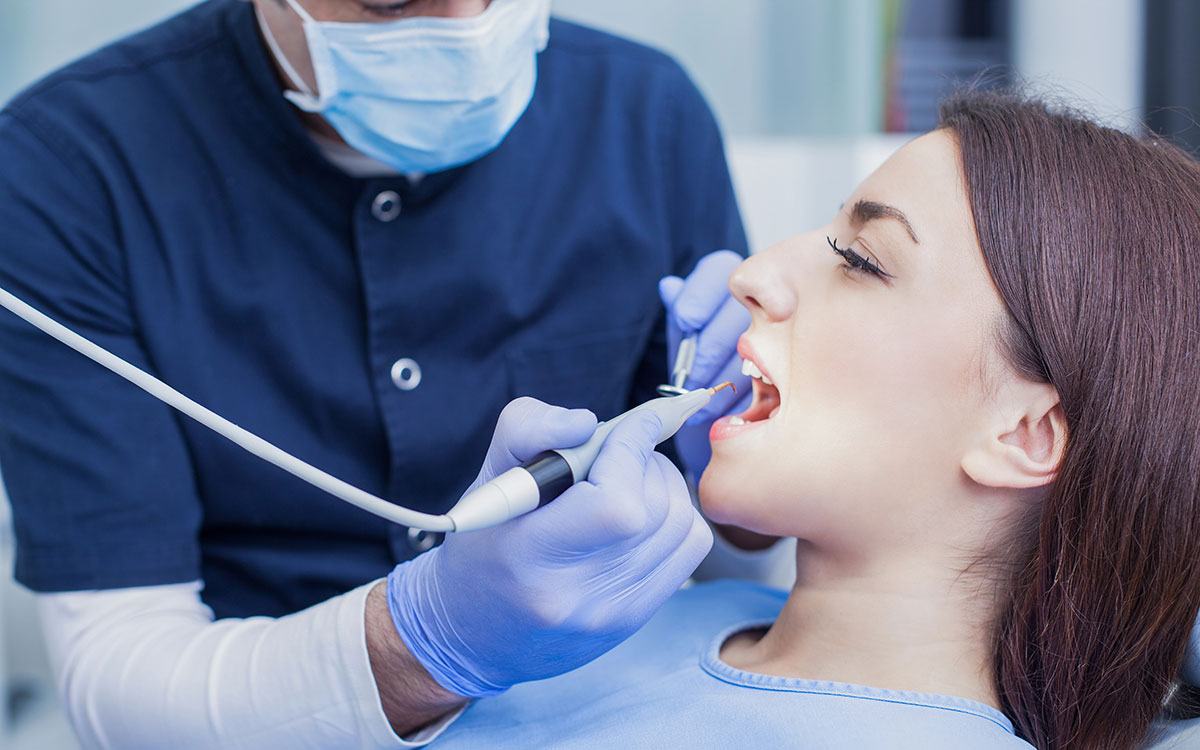Oral health is a vital determinant of overall body health. However, there are a lot of misconceptions around the relevance of dental health and how to maintain it.
These oral misconceptions are one of the leading reasons for inaccurate practices that will cause slow deterioration of your dental health. And if left untreated, it might also cause sufficient complications to your health in general.
Let us have a look at the common oral misconceptions that might keep you up at night.
Common Dental Misconceptions
1. Eating a lot of sugar causes cavities
Well, everybody knows that sugar is bad for your teeth. However, the facts behind it might not be as transparent. So why are sugars bad for your teeth?
In a nutshell, sugars are the perfect snack for bacteria found in the mouth. As the bacteria eat away the sugars, they produce acids responsible for eroding your tooth enamel. This leads to cavities.
However, this is not limited to sugars alone. Sticky foods and meals are also responsible for sticky plaque formation, ideal for feeding bacteria. This dramatically increases your chances of getting cavities.
It is always important to brush or rinse your mouth after every meal. This prevents food particles from sticking between your teeth, keeps them clean, and prevents oral issues.
2. Brushing your teeth harder makes them cleaner.
Contrary to most beliefs, brushing your teeth harder does more damage than good. Too much pressure as you brush can cause injury to your gum and tooth enamel. This may eventually lead to gum inflammation, bleeding, infections and increases your likelihood of developing oral complications.
Take up gentle teeth brushing for about two minutes daily. And always use a soft-bristled brush. If you notice any bleeding on your gums, ensure you book an appointment with your dentist.
3. Why floss when I can just brush?
Flossing is an essential routine to ensure optimum oral health. Though brushing helps remove most plaque from your teeth, some of that sticky gunk can still find its way between your teeth where your toothbrush bristles cannot reach.
The perfect way to ensure that your teeth are still healthy as ever is through flossing. Flossing removes about 80% of the plaque between your teeth. Daily flossing will maintain good oral health.
You may notice some slight bleeding when you start flossing. This should not be a big concern on your part. The bleeding goes away after a week or two as you continue your routine. However, if the bleeding continues, get in touch with your dentist for tips to take care of your teeth.
4. You only need to visit your dentist if your tooth aches.
You do not have to wait until you develop an oral issue before going to your dentist. Early diagnosis of a tooth, gum, or mouth problem can help you avoid trauma.
Experts recommend visiting the dentist twice yearly for regular examination and cleaning. Your doctor will spot any likely infections or cavities and provide the appropriate treatment in time.
5. Oral diseases only affect your mouth.
Experts often say that your oral health reflects your overall health. Your whole body works as one and is always correlated.
Tooth cavities or gingivitis can lead to bacterial infections that can travel throughout your bloodstream into other organs. Recent studies have shown that oral diseases can lead to other periodic infections which cause some forms of cancer, heart disease, and diabetes.
6. White teeth are healthy teeth.
It is a common misconception that having whiter teeth means healthier teeth. It is normal for the teeth to become colored and stained over time.
The natural color of teeth varies between people. Likewise, as you grow older, the lightness of your teeth also starts to change. Minerals in the diet can also cause a change in teeth color.
So having whiter teeth does not always mean better oral hygiene. A few ways to ensure your oral health is on the right track include checking for cavities, bleeding gums, and fresh breath. If you are worried about your yellow teeth, always consult your dentist first.
7. Chewing gum works like brushing your teeth.
Chewing gum (even sugar-free) is not a replacement for brushing your teeth. However, this is not to say that chewing gum is not without its benefits. Chewing sugar-free gum is good as it helps in the production of saliva. This is integral in teeth cleansing, reducing acidity in your mouth, and promoting fresh breath.
8. You can ignore bloody gums during pregnancy.
Studies show that expecting mothers are more likely to develop gum bleeding. It is because of hormonal changes which may lead to gum inflammation, also referred to as pregnancy gingivitis.
Apart from your regular oral hygiene routines like brushing twice a day and flossing daily, it is always important to seek advice from a dentist. They will give you helpful tips to prevent the risk of gum disease.
9. It is okay to take sugar-free soda as it has no sugar
Like regular soda, diet soda or sugar-free soda is not harmless to your teeth. Sugar is not the only cause of tooth cavities. Diet soda contains acids that can result in the erosion of teeth over time. Regular brushing and flossing are necessary for preventing teeth erosion, resulting in tooth decay or gum disease.
10. Cavities in baby teeth are not as serious.
Good oral hygiene in children is essential in promoting adult teeth development. Baby teeth cavities affect the growth of permanent teeth under the gum. They provide the necessary spacing for adult teeth to line up under the gum.
Premature removal of baby teeth due to cavities leads to uneven growth of adult teeth. This results in irregular teeth spacing. It is important to encourage regular teeth brushing and flossing for better care of their teeth.
Take Away
Though these are just some of the few common myths around oral health, getting more facts from your dentist is always important. Consult with us and keep up to date with regular daily routines to ensure better oral care for you and your family.







